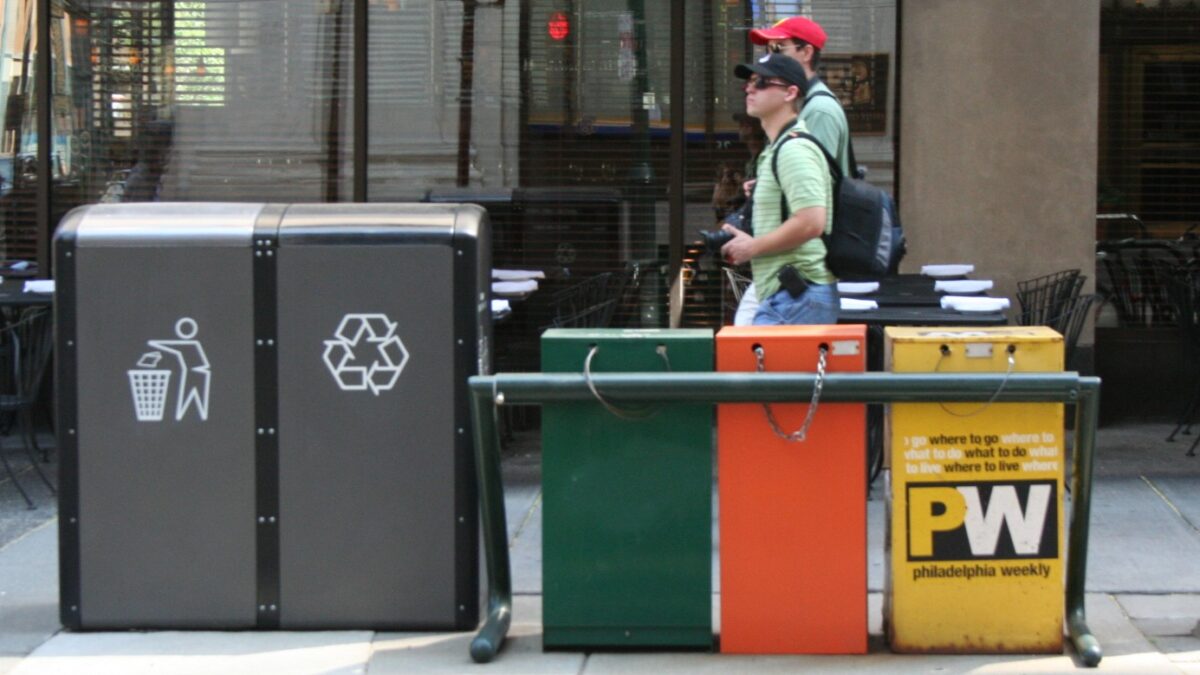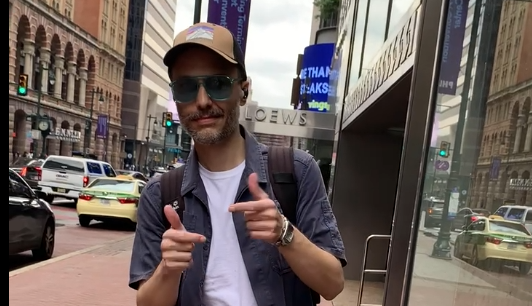Thom Nickels: It’s like pulling teeth
Going to the dentist has become an extremely expensive proposition, so it’s no wonder that people who struggle financially have problem teeth.
I go to Temple Dental — the Maurice Kornberg School of Dentistry — founded in 1863 and the second oldest dental school in the United States. Temple Dental was fairly economical ten years ago although the cost of treatment is still far below what a Center City dentist would charge.
It’s important to take care of your teeth. But brushing three times a day and flossing regularly doesn’t matter much when your family’s dental genes point to problematic teeth whether you floss or not.
That money-sucking vacuum I call my former Center City dentist became history when a friend suggested Temple Dental. Still, I was reluctant to give a dental clinic a chance because the idea of having students work on your teeth seemed suspect and scary.
Would the instruments used at a clinic be as good as the instruments used in the office of a Center City dentist?
Yes, I had heard horror stories: A woman friend told me that a dental clinic student (not Temple) was drilling a tooth when the drill broke in her mouth. Apparently the student dentist couldn’t get a proper hold on the instrument — dainty hands? — and the drill slipped. On another occasion, a dental student cut himself while working on her teeth and blood from the wound ended up in her mouth. My friend followed up with a Hep C and HIV test, both of which were negative.
Of course her tests were negative. Dental students are generally “cleaner” than a hospital autoclave.
While a dental student has never broken a drill in my mouth, I’ve had to suffer through marathon sessions in the chair as an especially slow and methodical student worked in slow motion, stopping every so often to have an instructor examine the work. In many ways, I’ve been lucky: the treatment I’ve received at Temple Dental has matched or even surpassed my Center City dental experiences.
But dentists are human, however, and mistakes happen.
Jonathan Beck, in an article entitled, “Should I go to a dental school to have my teeth fixed?” writes that a friend of his once described her dentist as having butterfly hands.
“By that standard,” he continues, “mine has rhinoceros feet. Case in point: My week-four visit was the day the fillings started. After about 20 minutes or so of painful drilling on a lower molar, my student called over a faculty member to check the progress — to see whether the tooth was ready to be filled. Not quite, so a few more minutes of drilling, then another supervisor came over to check again. This one looked at the tooth, turned to my student, and informed him that he would have received an automatic failure on the drilling section of the dental exam. “
The best student dentists at Temple seem to be Mormons from Utah or other parts of the West.
I don’t know why Mormon guys are attracted to the world of dentistry, but I noticed this trend years ago when I asked one student dentist where he was from and he said Utah. When I then asked him if he was Mormon, he said that he was.
Conventional wisdom dictates that you can “spot” a Mormon student dentist because they are so nice. This does not mean that non-Mormon dentists are not nice, but the Mormons — mysteriously — seem nicer than the average student dentist. They tend to smile a lot and almost all of them are good-looking.
One Mormon student dentist was shocked when I told him that I had read the biography of Mormon prophet Joseph Smith, No Man Knows My History, The Life of Joseph Smith by Fawn Brodie while in high school. When I rattled off a lot of other Mormon facts — in between the insertion of cotton swabs and cherry flavored Q-tip probes — he was bold enough to suggest that I might be interested in going to the Convention Center to hear the current LDS church president speak at an open forum. While I thanked him for the invite, I told him that I was quite happy with my own religion. “But,” I added, “that historic cross-country Brigham Young Mormon wagon train story — complete with locusts — gets me every time.”
I’ve never had any Mormon female student dentists, at least as far as I know, and that’s probably because female student dentists are less forthcoming when it comes to sharing personal information. Foreign female students tend to be very secretive and remote when it comes to casual chattiness. This is a cultural thing, of course, as nothing “mean” is meant by a colder and more distant patient approach, despite the fact that dentistry is so amazingly intimate.
Dentists, after all, not only put their fingers in your mouth, but they stretch your lips, sideline your tongue, and peer into your mouth as only a lover should. Free-form conversation pales next to this.
Once I had a very strong Cuban student dentist who didn’t know the power of his arms. He would drill with such gusto and depth that the residual pain afterwards was the most intense I’ve ever experienced, due to his muscular hands.
Another time a Jewish female dental student from New York kept me talking and laughing so much that other student dentists would look over into our cubical as if wondering what all the commotion was about. Some assumed that we were old friends.
Having a different student dentist every year (when the students graduate you are assigned a new dentist) gives you a good window into the types of people who make up the world of dentistry.
One of my most recent student dentists, born in India, was initially very formal and decidedly un-chatty. She caught me off guard when she insisted on calling me “Mr. Nickels,” a term which somehow always makes me think of my father when he wore a crush-and-fold fedora hat with one of his architect’s suits.
“Mr. Nickels, what will it be, a porcelain or gold crown?”
If you were to ask a child this, they would almost always respond, “A gold crown,” but gold, while it lasts longer, could be an object of veneration by thieves and muggers if you’ve no money to give when accosted in some dark alley and if, God forbid, the thugs discover that the only valuable stuff you own is in your mouth. I’ve heard of grave robbers going into coffins and taking out gold fillings in order to be able to do the Kensington and Allegheny gold for cash thing.
“I choose porcelain,” I told my student dentist, “not because of thieves but because porcelain looks like a real tooth.”
“Okay, that’s fine,” she said. “Most people choose porcelain.”
I once told a friend that I felt exposed and imperfect after a student dentist spent hours peering into my mouth poking through the maze of flawed crevices.
This got me thinking about the relationship between student dentist and patient, and whether or not those relationships could ever evolve into something special, such as a romance. As unlikely as this seems, stranger things have happened in life, although with dentistry it’s more than likely that the untoward condition of a patient’s mouth would get in the way of a deeper personal connection even if a powerful personal attraction was at work.
It is still true, however, that the intense physical intimacy of dentistry, such as peering so closely into a mouthful of flawed teeth and gums, might be said to rival the intimacy of the French kiss.
Of course, from the student dentist’s point of view, there must be many mouths they’d rather not explore. These are the mouths, after all, that we hear everyday in the subway or the El or on the road to City Hall, the same mouths that cry up or cry down, use the F word, curse perceived slights on the highway or that say a gentle “thank you” after a door has been held open for them.
These are also the mouths that have spoken words of love, slandered their neighbor, and in some cases, haven’t seen the bristles of a toothbrush in years.
Thom Nickels is a Philadelphia-based journalist/columnist and the 2005 recipient of the AIA Lewis Mumford Award for Architectural Journalism. He writes for City Journal, New York, and Frontpage Magazine. Thom Nickels is the author of fifteen books, including “Literary Philadelphia” and ”From Mother Divine to the Corner Swami: Religious Cults in Philadelphia.” His latest, “Death in Philadelphia: The Murder of Kimberly Ernest” was released in May 2023.





Fascinating article. I have only used four dentists in my life. I only left each when they retired. My most recent dentist retired and sold his practice to a Dental Group. When I went for my scheduled appointment the office – which once was spotless and welcoming – was dark and empty. The receptionist said she called me to tell me that they were without a hygienist, but I could find no message on either of my phones. Anyway, i needed work on a crown and she rescheduled me for an appointment with their dentist two days later at 8:30 AM. I arrived for this second appointment – office still dark and of course empty. As I waited in the anteroom I could hear them discussing how to find certain items. When I went back to the exam room, I noticed that the chair was dirty and the picture on the wall was hanging crooked. Then the tried to take an xray. After four unsuccessful attempts I got out of the chair and said that they were not ready for prime time and that they should call me to reschedule when they have their act together. That was 19 days ago and I’m looking for a new dentist.